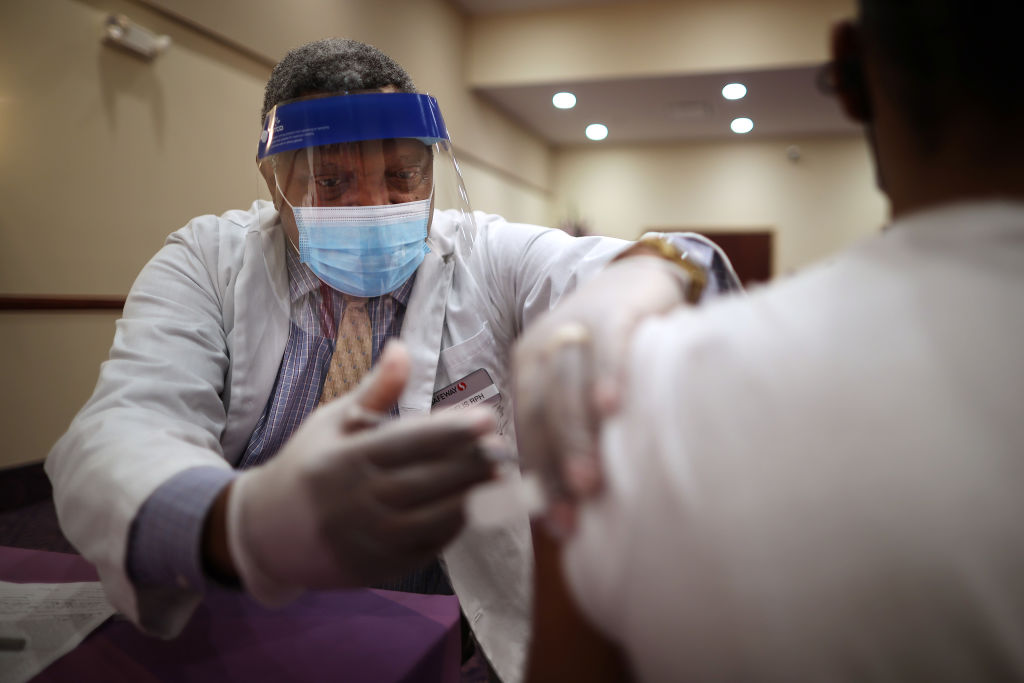What reasons lead a person to not want to be vaccinated?
3:37
(CNN Spanish) -
Health authorities recommend that people who already had covid-19 also get vaccinated against the virus.
Dr. Elmer Huerta explains the findings of a brief study published March 10 in
The New England Journal of Medicine
that determines the effect of the vaccine in this group of people.
You can listen to this episode on Apple Podcasts, Spotify, or your favorite podcast platform, or read the transcript below.
Hello, I am Dr. Elmer Huerta and this is your daily dose of information about the new coronavirus.
Information that we hope will be useful to take care of your health and that of your family.
One of the most disappointing things we have learned during the first year of the pandemic is that everything indicates that the disease does not leave us with permanent immunity.
In other words, there is already scientific evidence - although its true frequency has not yet been determined - that a person who already had the disease can be reinfected.
Another consequence of this lack of immunity after the initial infection is that it has been recommended that a person who already had COVID-19 should be vaccinated.
Receiving two doses of the Pfizer, Moderna, or one of the other vaccines.
advertising
Study participants
Today we will hear an interesting and brief study that determines what is the response of a person with a previous history of infection when receiving the Pfizer or Moderna vaccines.
In a letter published in
The New England Journal of Medicine
on March 10, researchers at the Icahn School of Medicine in Mount Sinai, New York, studied 110 people, of whom 43 had neutralizing antibodies in their blood (suggesting they had already had the disease).
Whereas 63 did not have them (suggesting that they had not yet had it).
Of the 110 people, 88 received the Pfizer / BioNTech vaccine and 22 the Moderna vaccine.
Let us remember that, for a variable time, the infection leaves neutralizing antibodies circulating in the blood of the person who suffered covid-19.
READ: AstraZeneca ensures that its vaccine is 79% effective
What the researchers did was something relatively simple: measure the level of neutralizing antibodies stimulated by the vaccine in both groups of volunteers.
Those who had already had the disease, and those who had not yet had it.
The idea was to find out if those people already exposed to the virus and, therefore, with immunological memory, could present a greater antibody response than those not exposed.
Antibody response of study participants
Said and done, the results indicated that after the first dose, participants who had already had the disease developed a very rapid response with higher and more uniform antibody titers than those who had not had COVID-19.
To be more specific, after receiving the first dose, the amount of neutralizing antibodies produced by people who had already had COVID-19 was 10 to 45 times higher than in those vaccinated who had not had the disease.
And after the second dose, those who had already had the disease responded up to 6 times more than those who had not had COVID-19.
On the other hand, while it is true that people who did not have COVID-19 produced three times more antibodies between the first and second doses, people with a history of COVID-19 did not produce them in greater quantity.
This suggests that the second dose may not be necessary for them.
The researchers conclude that a single dose of the messenger RNA vaccine caused participants who had already had COVID-19 to respond more quickly and with higher antibody production than participants who did not have COVID-19 and received two doses.
That opens the possibility that a single dose of the messenger RNA vaccine - instead of the two currently recommended - could be enough to provide effective protection in people who have already had the disease.
Side Effects of Vaccines
Finally, the researchers also studied the frequency of side effects caused by vaccines in 230 people: 148 with a previous history of the disease and 82 without a previous history.
Of the participants, 156 received the Pfizer / BioNTech vaccine and 74 received the Moderna vaccine.
LEE: Women tend to report worse side effects from the covid-19 vaccine than men.
This is the reason
What they found was very interesting, because although local side effects - such as pain, redness, and swelling at the injection site - were similar in both groups of people, the general or systemic effects - such as fever, fatigue, headache, chills, muscle pain, and joint pain — were more common in people who had already had the disease.
There is no explanation for this phenomenon.
In none of the cases, neither in antibody production, nor in side effects was there a difference between the Pfizer / BioNTech and Moderna vaccines.
Do you have questions about the coronavirus?
Send me your questions on Twitter, we will try to answer them in our next episodes.
You can find me at @Drhuerta.
If you think this podcast is helpful, help others find it by rating and reviewing it on your favorite podcast app.
We'll be back tomorrow so be sure to subscribe to get the latest episode on your account.
And for the most up-to-date information, you can always head over to CNNEspanol.com.
Thanks for your attention.
If you have any questions you can send them to Dr. Elmer Huerta through Twitter. You can also head over to CNNE.com/coronaviruspodcast for all episodes of our “Coronavirus: Reality vs. Reality” podcast. fiction".
Coronavirus vaccine

